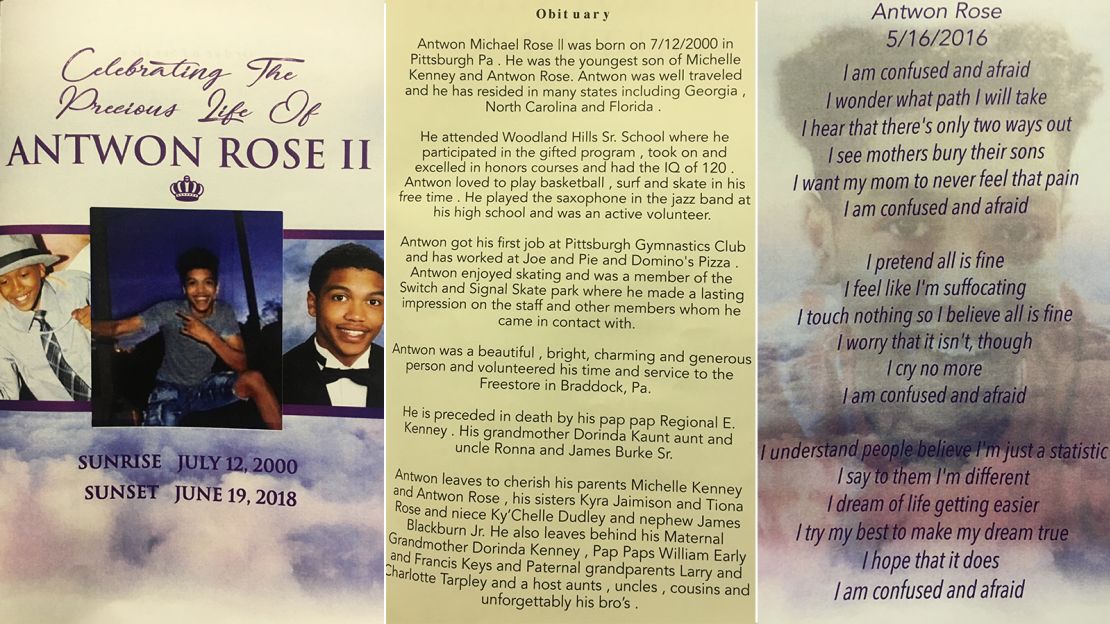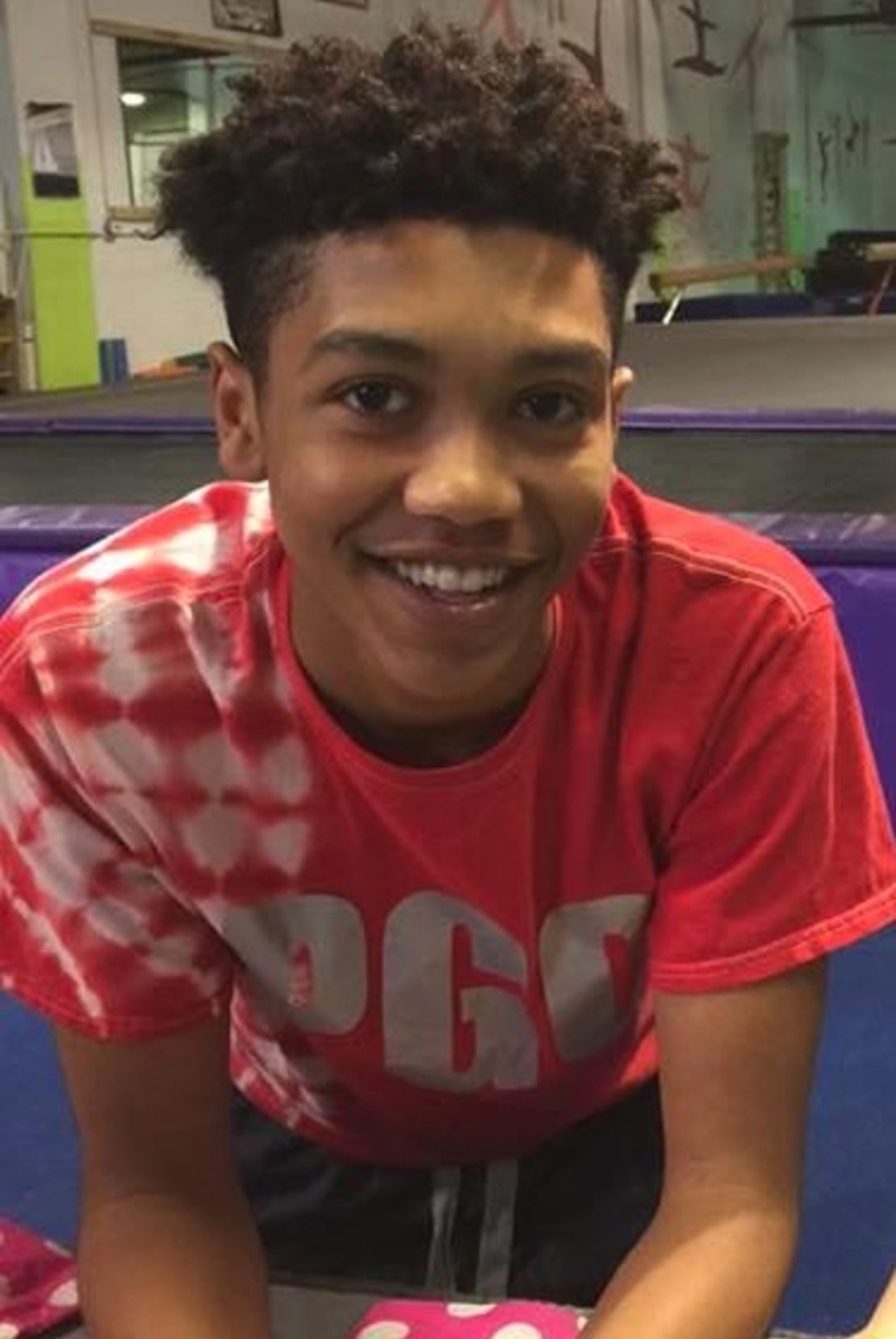In his teenage mind, Antwon Rose II wrestled with thoughts of hope, fear and uncertainty about growing up black in America.
After a suburban Pittsburgh officer fatally shot the unarmed 17-year-old as he ran from police last week, his family released a poem Antwon had written that showed the range of emotions he felt. He titled it, “I Am Not What You Think!”
“I see mothers bury their sons / I want my mom to never feel that pain”

Antwon’s mother, Michelle Kenney, said her son’s poem is “not just a poem.”
“That is the life of many, many young African-American males. It was just that my son wrote it down and he lost his life,” Kenney said in an exclusive interview that aired Monday on “Good Morning America.”
A young activist, not much older than Antwon, has recited the poem at the protests that followed Antwon’s death, reciting verses that linger in the air.
“I understand people believe I’m just a statistic / I say to them I’m different”
At his funeral on Monday, two of Antwon’s close friends read the poem, which was printed on the funeral program.
The story of how the poem took on a life of its own after Antwon’s death begins with his old English teacher.

‘His mom’s going to want this’
For two years, the poem lived on Laura Arthrell’s electronic grade book, largely forgotten. It was part of a final assignment she gave to her 10th grade honors English students, challenging them to write about a topic more important than themselves.
On the night of Antwon’s death, she saw a video of the shooting that was posted on Facebook. The next day she learned the victim was her former student, a goof with an amazing smile.
“That will never leave my head,” she said of the video.
Arthrell couldn’t remember what he had written about in 2016, and searched for the poem.
It gave her chills when she read it last Thursday.
“A lot of kids, if they don’t succeed, end up dead or in jail, in spite of everything everybody does for them,” she said.
Arthrell liked that the title of Antwon’s poem spoke of hope and defying expectations.
“I dream of life getting easier / I try my best to make my dream come true”
She knew his voice needed to be heard.
She called Licia Lentz, the school district’s assistant superintendent, to ask for help getting in touch with Antwon’s family.
She read the poem to Lentz on the phone and began to cry.
Arthrell printed 10 copies and set out for Antwon’s family’s home in Rankin, a borough in Allegheny County, crying along the way.
She thought his family would want more than one copy.
At the family’s home, she read the poem aloud in their living room.
“I wanted them to hear the words, and I needed to hear it, to tell you the truth,” she said.
She recalled Kenney sobbing.
“God bless that woman. She cried so hard,” Arthrell said. “It was like he was talking to her. It was like he was talking to them.”
Antwon’s family wanted the world to hear the poem next.
‘This is reality for people’
Later that day, Christian Carter, the 18-year-old activist who joined a rally in front of the Allegheny County Courthouse in Pittsburgh, received a copy of the poem from someone who knew one of Antwon’s sisters.
She asked for it to be read aloud.
Carter, an actor who co-founded a youth-led activist group called Youth Power Collective, scanned it quickly.
Several verses struck him, he said. Among them, the prescient lines: “I see mothers bury their sons/I want my mom to never feel that pain”
As he read it for the first time on the courthouse steps, he could feel the energy in the air.
“It sits with you,” said Carter, a recent graduate of the Pittsburgh Creative and Performing Arts School.
“It shows the reality that black children have to live in every single day,” Carter said. “From the day that we are born, we have to watch us die.”
The poem gave him a better sense of Antwon, “his character, how smart and aware he was,” Carter explained.
“This is reality for people. This is not just us protesting because one of us died. This is us literally demanding that our lives are protected by the people that are there to protect and serve us.”






